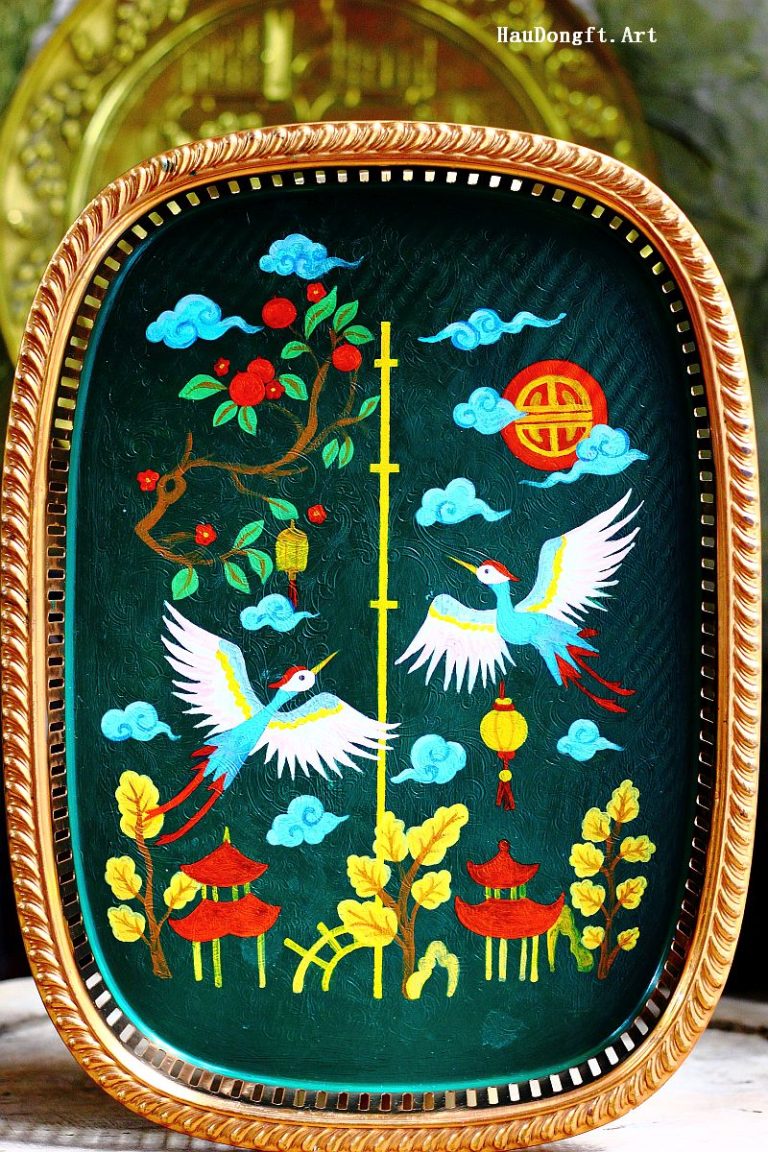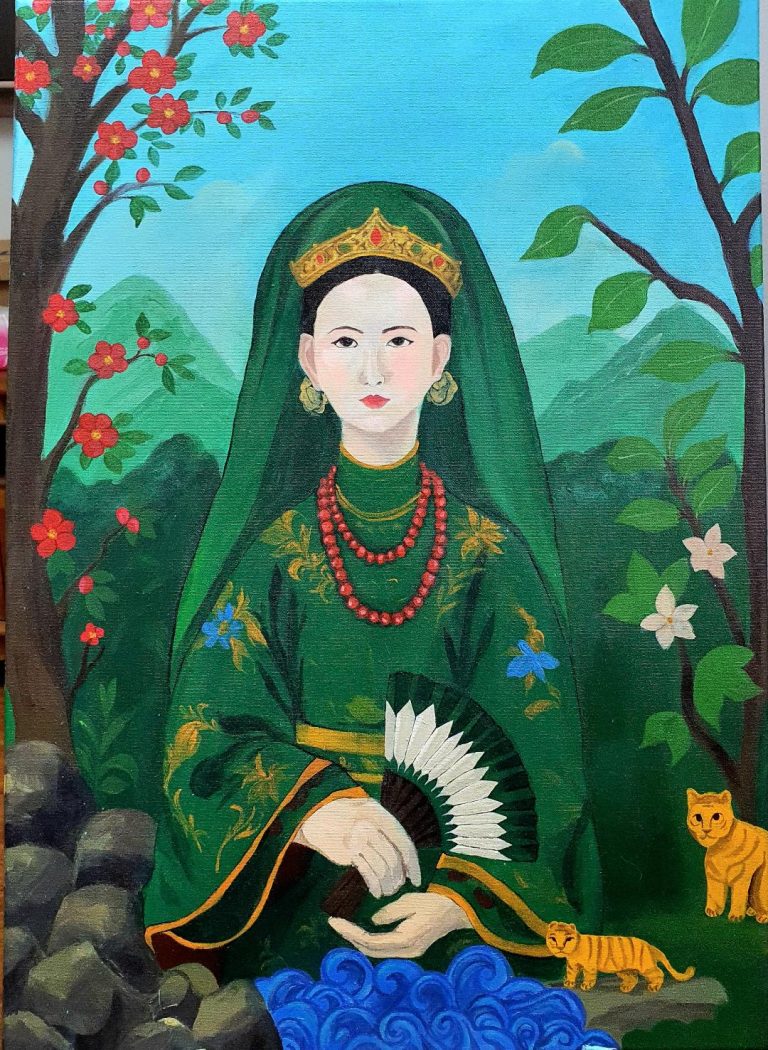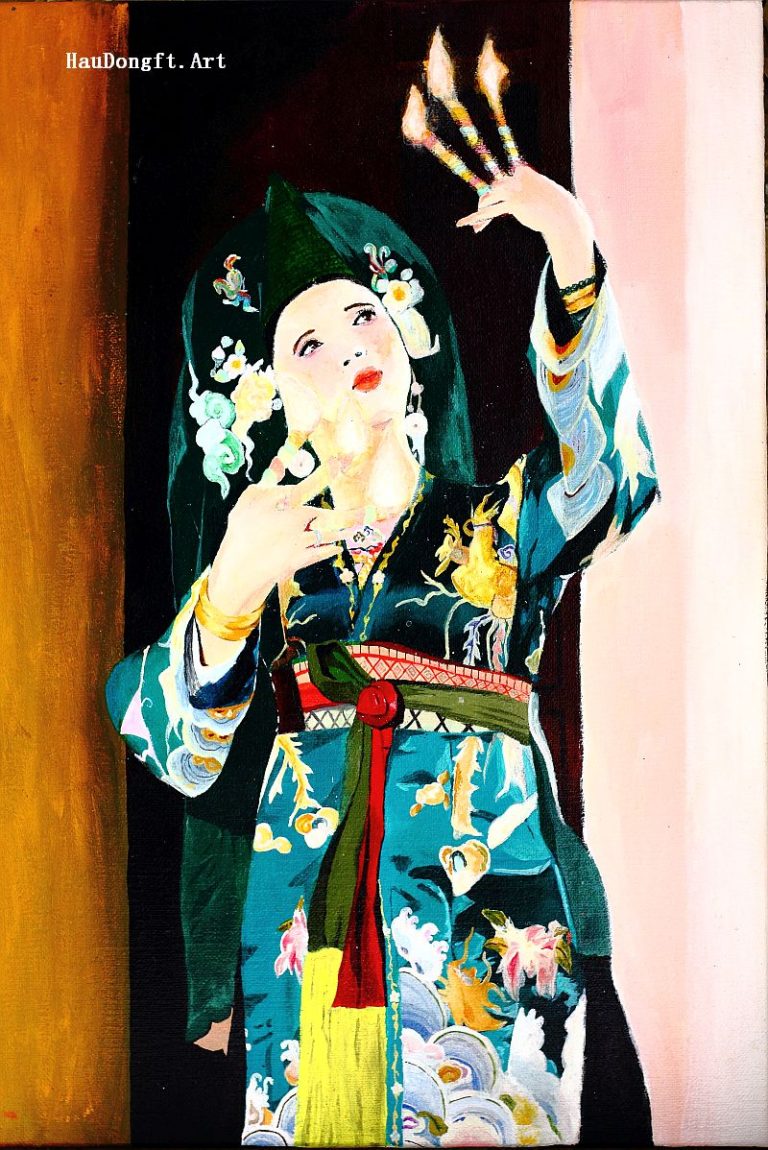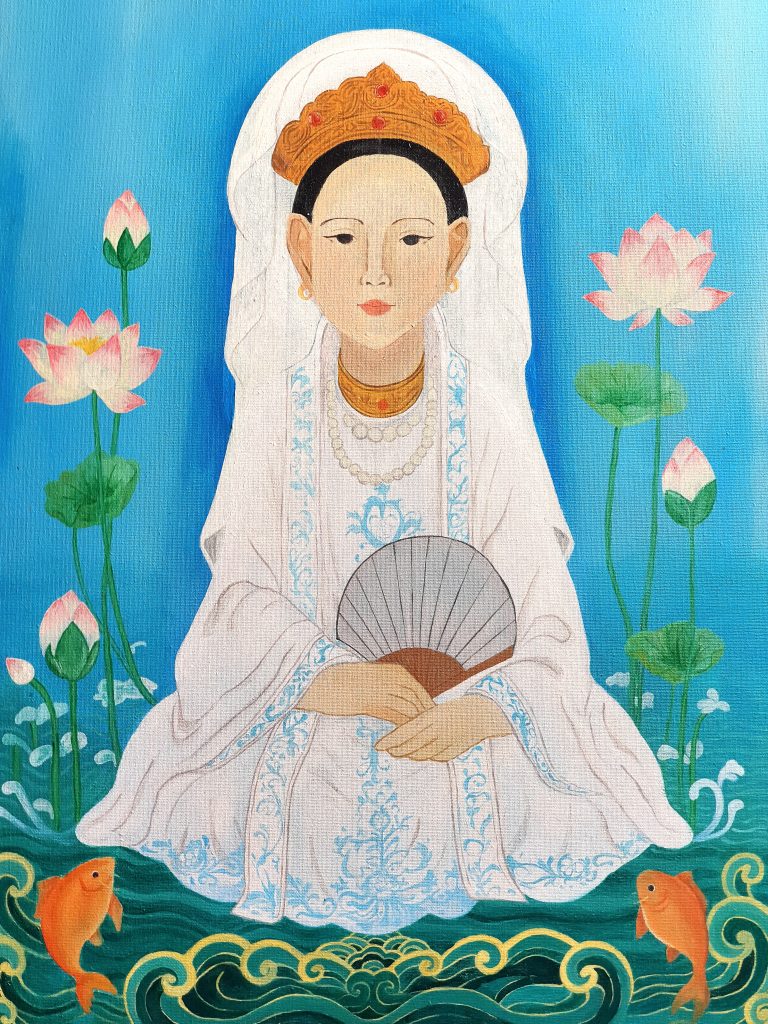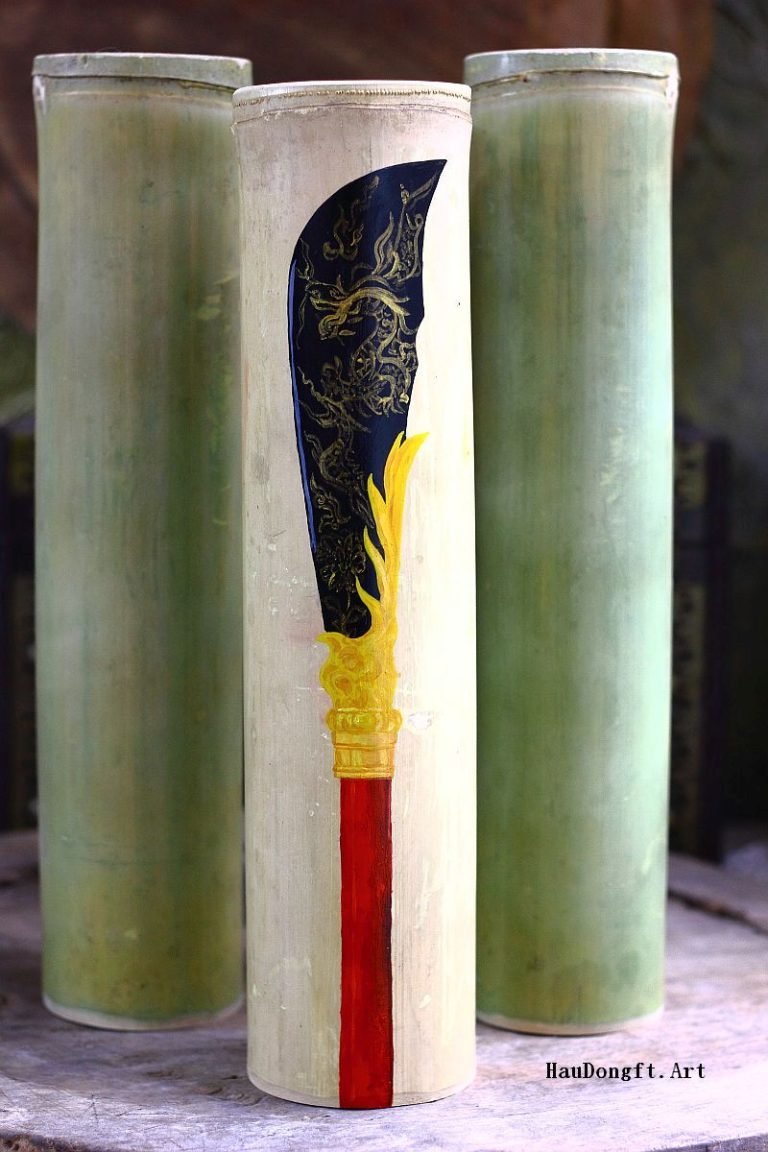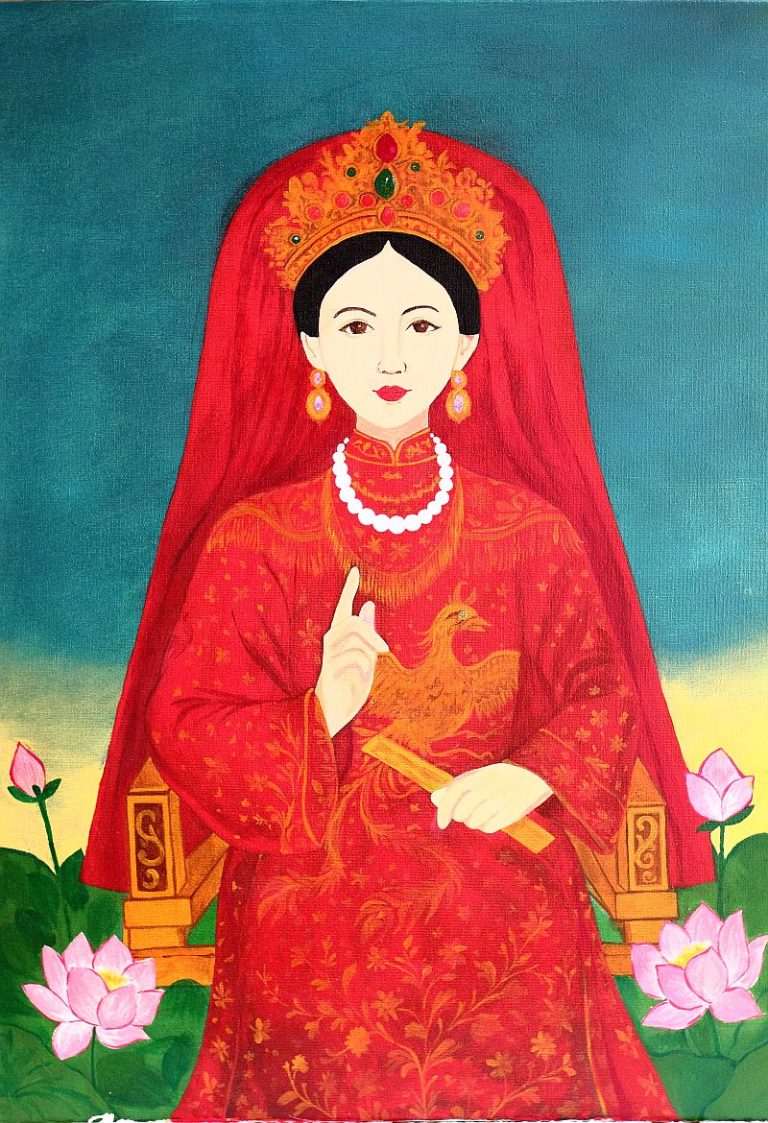Ông Hoàng Bảy, also known as 7th Lord of Bảo Hà, is a revered deity in Vietnam’s Mother Goddess worship (Đạo Mẫu).
He is believed to be the seventh son of King Father Bát Hải Động Đình, the ruler of the Water Palace, and the Seventh Marquis (Quan Hoàng Thứ Bảy) among the Ten Marquis Deities (Thập Vị Quan Hoàng) of the Four Palaces pantheon (Tứ Phủ).
For his great merits and heroic deeds when descending to earth, Lord Bảy is venerated by people across the country, with temples dedicated to him in many regions—most famously the Bảo Hà Temple in Lào Cai Province.
THE LEGEND OF THE 7TH LORD’S DESCENT
According to legend, Lord Hoàng Bảy descended to earth at the command of his divine father, taking human form as the seventh son of the Nguyễn family during the Cảnh Hưng era (1740–1786), late in the Lê Dynasty.
At that time, the Quy Hóa region (present-day Yên Bái and Lào Cai) was invaded by northern aggressors, especially in the districts of Văn Bàn and Thủy Vĩ, where local people suffered greatly—losing their homes and livelihoods, wandering in misery.
In response, the royal court dispatched the seventh general of the Nguyễn lineage to defend the northern frontier.
With deep compassion for his people, Lord Hoàng Bảy led his troops along the Red River, driving out the invaders and reclaiming Khảu Bàn (now Bảo Hà), where he established a major military base.
After consolidating his forces, he rallied local chieftains and villagers, including Dao, Thổ, and Nùng ethnic groups, forming a united resistance army. Under his command, they liberated Lào Cai and the entire Quy Hóa region, restoring peace and stability.
Lord Bảy also encouraged the people to reclaim land, build settlements, and strengthen local defenses. The northern invaders repeatedly returned, but thanks to his brilliant leadership, the borders remained secure.
During one major invasion led by the enemy general Tả Tủ Vàng, Lord Hoàng Bảy fell heroically in battle due to the vast disparity in forces. His body drifted down a stream to Bảo Hà, where locals found and buried him on Núi Cấm (Forbidden Mountain).
Deeply moved by his bravery and devotion, the people built a temple to honor him. Later, the Nguyễn Dynasty posthumously conferred upon him the title “Trấn An Hiển Quốc” (Pacifier and Protector of the Nation) and the rank of “Thần Vệ Quốc” (National Guardian Deity) in recognition of his service in defending the country’s borders.
